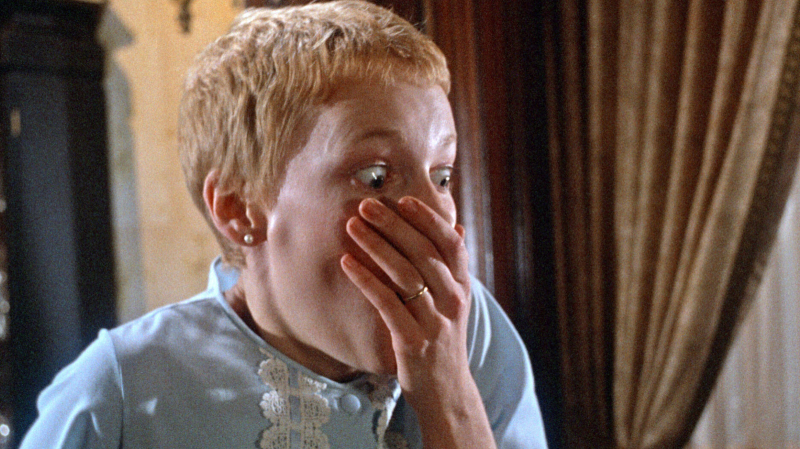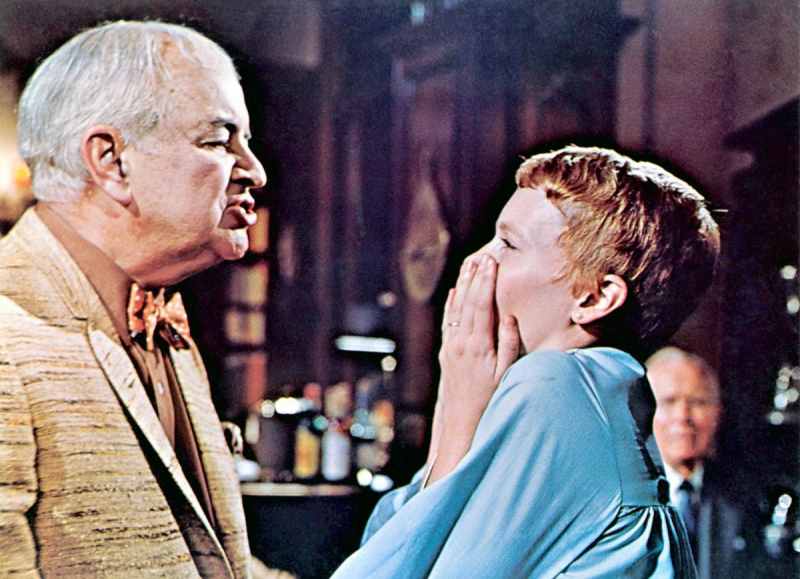Rosemary's baby

Cinema has been seen as a very effective medium for capturing paranoia. The sensation of doors closing in and having invisible ghosts observe you from afar could be tangibly conveyed via visual media. Blowup, directed by Michelangelo Antonioni, effectively invented the thriller subgenre; it influenced subsequent classics such as Francis Ford Coppola's The Conversation or Brian De Palma's Blow Out. Throughout the 1970s, the widespread skepticism of the government in the aftermath of the Watergate affair inspired so many political conspiracy dramas, including Marathon Man, The Parallax View, and Three Days of the Condor.
.
Rosemary's Baby, directed by Roman Polanski in 1968, has been hailed as one of the greatest, most dramatic film depictions of paranoia. Rosemary's Baby is a film adaptation of Ira Levin's book with the same name. It follows a pregnant woman who comes to fear that her husband, physicians, and neighbors are all plotting against herself and the baby.
.
The paranoia in Rosemary's Baby resonates because her beliefs are not proven until the film's famous last moment. Thus, everyone thought the events in the film were all literal paranoia until the great surprise ending.
.
Director: Roman Polanski
Year of Release: 1968
IMDB Score: 8
Metascore: 96











